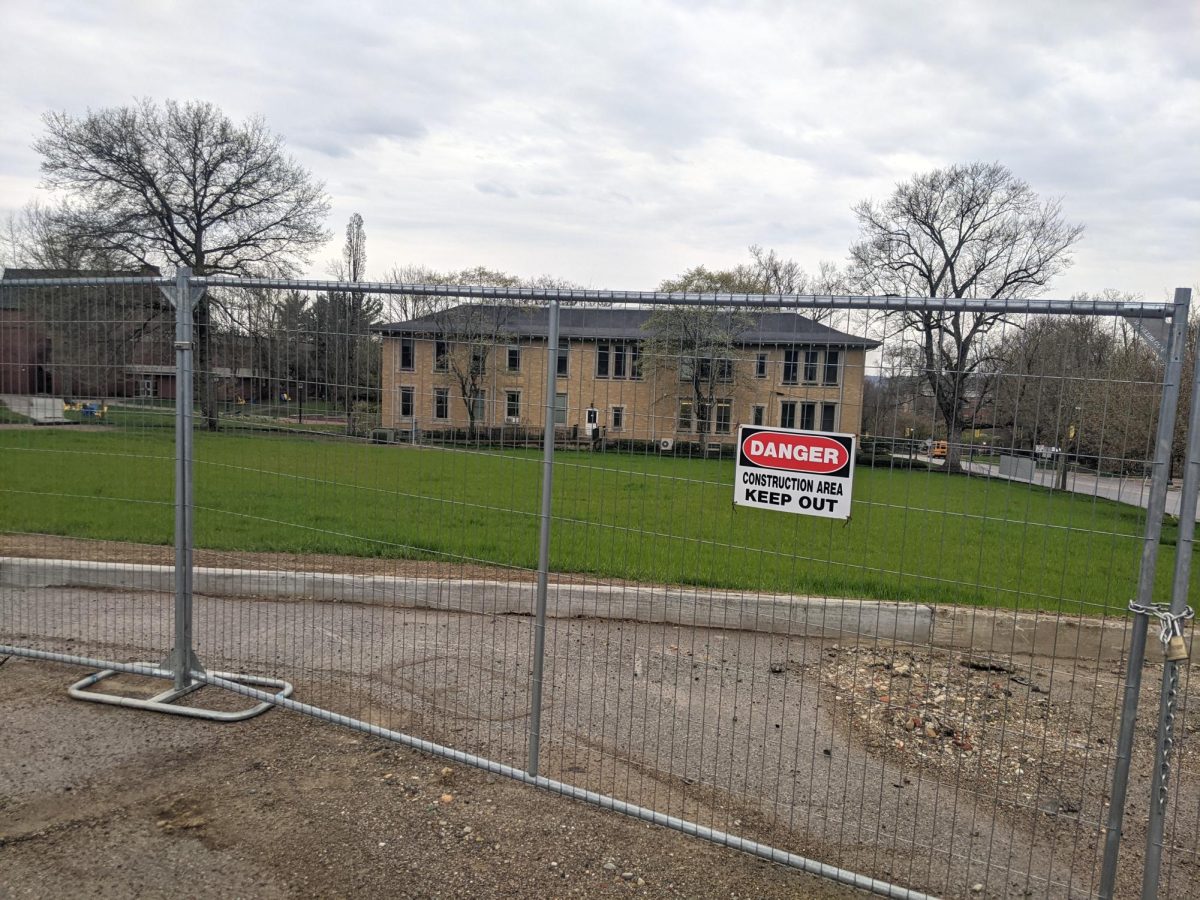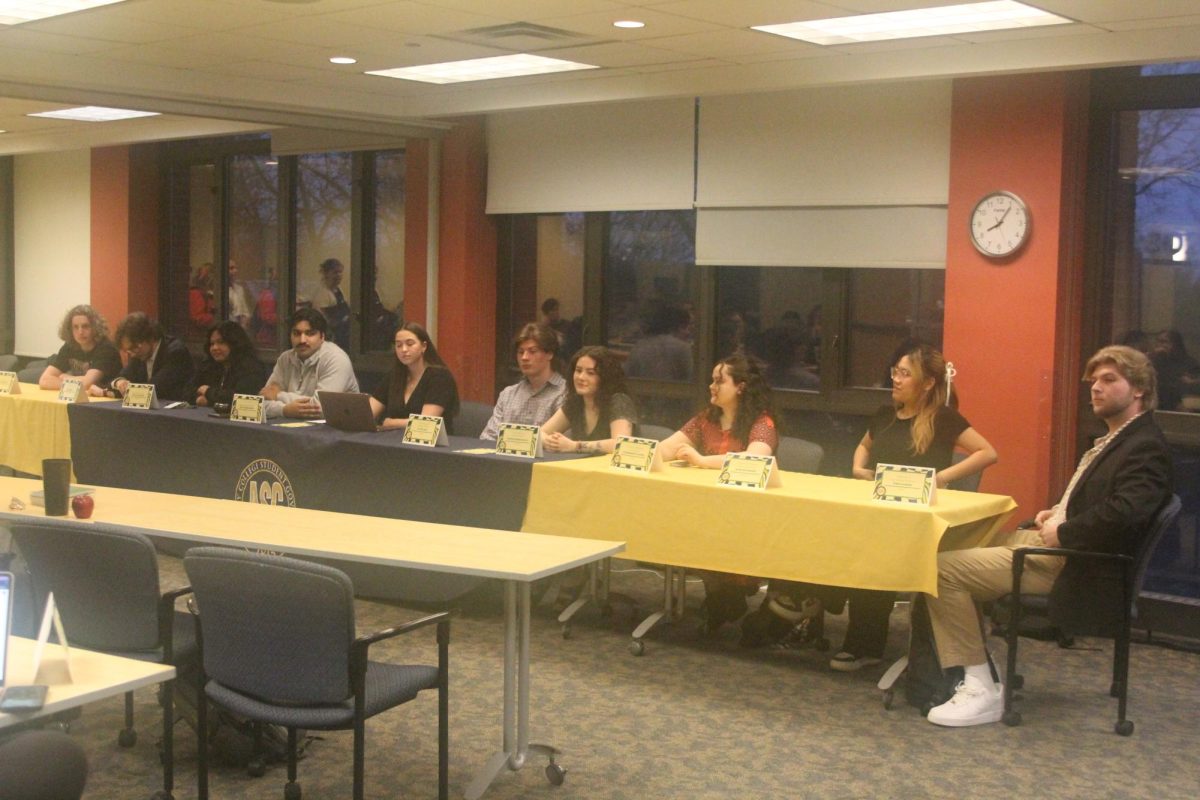After the disposal of thousands of books and the assistance of a mold remediation team that cleansed the area, the library is now mold-free. Library Director Linda Bills said they worked to find the best solution during the fall semester before agreeing on a mold remediation team from Erie.
“They tested the air in several places and they did a swab test on some of the books and surfaces and we are now clear of any unusual level of mold,” Bills said.
Bills said the mold remediation team worked for two weeks over winter break to clean the area.
“They put in some special machines to…clean the mold spores out of the air and then they wiped down every book,” Bills said.
The clean-up required 3,500 books and 40,000 government documents to be discarded. Bills said there’s an additional 200 books they would like to keep, but may have discard as well. They’re reviewing the books on a title-by-title basis for replacement.
“This may sound bad,” Bills said. “People go, ‘Oh my god, you’re throwing away books!’ But in truth, many of the things that we had in the compact shelving down there were things that were very very seldom used. They were older materials that are not as valuable or as useful to the collection as they used to be.”
Kevin Van Develde, ’13, works at the library and witnessed the team throw the books away.
“It was pretty upsetting,” he said. “I actually saw them throwing them into the dumpster, but it was one of those images that kind of make you tilt your head a bit.”
Bills said the discarded books in the collection were never used, were outdated, or were in obscure languages.
“They were, oh let’s say, a book about how to write programming in Basic that was written in 1985,” Bills said. “I think people would agree we don’t need that book.”
Annie Maglione, ’13, said part of the contaminated section contained titles in the developmental psychology department, the focus of her senior comp. While she already has many books checked out, the loss of these books has disrupted her research.
“I’m still finding more [books I need],” Maglione said. “I kind of wonder what was there that they threw away that I could have had access to.”
The mold contamination didn’t hurt Maglione’s progress on her comp, but she said the limited access did delay her slightly.
“If I had [that literature] before, it would have been really beneficial to my work,” Maglione said.
Bills said many books will be repurchased in electronic format for use. She said cleaning up the mold provided an opportunity to refresh a two hundred year old collection that isn’t all necessary anymore.
“If we have the entire run of the Journal of American History online, are you guys ever going to go look at my paper copies, ever, realistically? No,” Bills said. “So why am I keeping them? This is not an archival library. This is a library for use.”
Van Develde said the conversion to digital copies is useful for students at times.
“It certainly is a lot easier when you go on the library website and you search for a book and you don’t have to get it out cause it’s an ebook,” he said. “[…] Not that I don’t love having a book in my hands, but sometimes it’s 3:30 in the morning and you can’t get to the library.”
Maglione said she disagrees. While it is helpful to have more convenient access to the books, she said she would prefer a paper copy.
“I don’t really like online books,” Maglione said. “I can’t use sticky notes. We already stare at computer screens for so long and it’s so bad for our eyes.”
Bills said to prevent future mold growth, they’ll be monitoring humidity levels carefully. High humidity from a mild winter and a wet summer caused the mold in the first place.
“The long term plan is to make adjustments in the heating and air conditioning systems so that we keep the humidity low enough so that the mold doesn’t grow again,” Bills said.
The problem of mold contamination is common for libraries, but she said this case was mild as compared to others. When searching for the right company to clean the area, the major problem was finding a company “that didn’t treat it like it was Ebola,” she said.
“One of the problems we had frankly was the mold remediation companies are used to coming in where the situation is so bad you have to wear hazmat suits,” Bills said. “[…] I’m going, ‘Look, we’re walking around down here and none of us have keeled over dead yet.’ The levels were not killingly high. It wasn’t the kind of mold that kills, it’s just not healthy.”
Van Develde said he’s glad the mold is gone and the library is back to normal.
“Now that everything’s back to normal it will be a lot smoother I think,” he said. “[…] I think a lot of people kind of relied on that [area] to do their work and it wasn’t available for a long time. It also doesn’t look like some weird apocalypse place down there because when they had the big plastic sheet I was like, ‘What’s going on?’”






